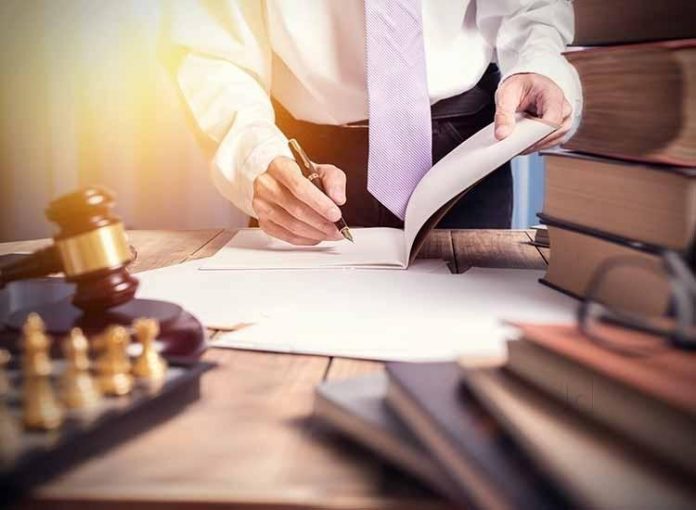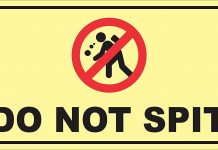This article is written by Vandana Shrivastava, student of B.A.L.L.B. (Hons.) at the Institute of Law, Nirma University, Ahmedabad. This article highlights several issues which would arise due to the COVID-19 pandemic in India, and the ways to deal with them.
Table of Contents
Introduction
The pandemic has had a disastrous effect on all affected nations. India, of all, was already in a compromising situation with its unfavourable economic condition recently. Since such an event was unprecedented, all planning has gone into deep waters.
Final year law students await their graduation, while still being doubtful about it. Some law schools have the privilege of teaching their students by online platforms such as google classroom. For others, it is a wait until the lockdown is lifted.
Lawyers and legal firms, who are the real players in the field, can make the most out of the current situation in the upcoming time. In lieu of worrying about lost business due to the mandatory social distancing, the focus should be on figuring out a way to make the best use of the events that are happening currently. This article will cast a light upon the opportunities that lawyers could grab hold of, amid COVID-19.
How can lawyers deal with COVID-19?
In the current times of distress, everyone is homebound and there is not much to do. With the internet at one’s disposal, thorough research could still be done. Discussed below are several legal issues which are going to arise as a result of COVID-19. The Sections or Acts dealing in those topics are mentioned along with the disputes. The lawyers and law firms can deal with all these issues by studying these topics and being ready for them beforehand.
When a real problem will occur, it would be slightly different from straight problems. Prior preparation helps in understanding the problem better, and to make essential changes which the emergent situation requires.
Legal Issues arising out of COVID-19 and the ways to deal with them
Issues Related to Criminal Law
Unlawful Assembly
Prior to the placement of lockdown, the State had imposed unlawful assembly in the country to avoid mass gathering as a precautionary measure for containment of the spread of COVID-19. Mischievous elements of the society did not follow the orders, which led to the endangerment of the lives of many. As a matter of fact, non-abidance of the law led to the spread of the pandemic in the country.
Disobedience of quarantine
The State had ordered all the persons in the territory of India to stay under home quarantine and to step out only to grab essential items. Despite elaborated instructions, there is heavy defiance of the quarantine. Several instances of people gathering in groups and organising social gatherings have come up. Defiance of quarantine poses a criminal liability under Section 188 of the Indian Penal Code, 1860 (IPC). Section 3 of the Epidemic Diseases Act, 1897 read with Section 199 of the IPC makes the defiance to obey quarantine a criminal offence.
Similar to organising an unlawful assembly, disobedience of quarantine puts the lives of people at risk. Right now, when the danger is grave enough to spread to all persons, who come in contact with the infected person, the threat posed is even greater in nature.
Negligence
Both of the above-mentioned acts are acts of negligence. If someone steps out even to buy or to collect essential commodities, non-compliance with social distancing would also amount to negligence. Coming in physical contact with anyone could be dangerous to all those people who participate in such contact. Negligence which endangers the lives of others is an offence under Section 269 of the IPC.
A deliberate act done towards touching someone could also be categorised as malignant. If such an act is not consensual, it would amount to trespass against a person.
Medical Negligence
The novel coronavirus is strong enough to infect a person when such a person comes in contact with an infected person for a short moment. Doctors have to treat normal patients besides treating the ones diagnosed with COVID-19. In the event of doing so, they might unintentionally transfer the virus to another patient due to non-maintenance of good hygiene. Or doctors might treat patients erroneously, due to overworking themselves.
If any activity by the doctor endangers lives or leads to someone’s death, they would become criminally liable under Section 304A of the IPC unless the Bolam test suggests otherwise.
Sale of adulterated drugs
Frauds are selling drugs to people claiming such drugs to be a cure for COVID-19. Such claims are false, and the drugs might even affect the health of those taking such drugs. People who manufacture and sell such drugs knowingly become criminally liable under Section 274 and Section 275 of the IPC.
Such acts are bound to happen in recent times. Therefore, the sections so mentioned shall be studied and researched well upon.

Issues related to Contract Law
Breach of Contract
The contracts made prior to the entry of COVID-19 in India, which had to be performed in the lockdown period stand unperformed for various factors. Some of those may be justified, but there would be certain unreasonable ones too. Contracts are solely used for business purposes. They are used in our daily lives as well. A breach of contract is defined under Section 39 of the Indian Contract Act, 1872 and the refusal to perform one’s part of the contract.
One of the examples of breach of contract is unlawful eviction notices to tenants recently. Doctors in various regions have complained about being slapped with eviction notices from their landlords for endangering the lives of those around them. Issuance of such notices, if they are not in accordance with the rental agreement of the parties would make the landlords liable to pay compensation. Not just doctors, civilians who work for essential service sectors would also experience similar acts.
The defence of Force Majeure could be taken by both the parties in such cases. Force Majeure means is an unforeseeable event that has caused a hindrance in the performance of a contract. Herein, two major questions arise:
- Are the parties to a contract at fault for the frustration of the contract?
- Or is the State imposed lockdown responsible for breach of contracts or the pandemic of COVID-19?
To determine the second question, the doctrine of proximate cause would have to be applied. The doctrine of proximate cause states that the most efficient cause behind the happening of an event would be the only one which matters and will be applied to the performance/non-performance of the contract.
Insurance Claims
Life/Health Insurance
Successors of patients who die of COVID-19 would be entitled to receive their life insurance if the terms of insurance include death due to an unforeseeable disease or a similar general provision. Similarly, the ones who were/are diagnosed and they survive after the treatment would claim their health insurance.
A virus has spread on such a large scale for the first time in centuries. With the number of cases rising each day, many such insurance claims would arise. If insurance companies began to pay every insurance claim, they would go bankrupt. Therefore, there are going to be certain legal battles, and legal representatives would be required for both sides.
Marine Insurance
Ships transport large quantities of cargo due to their carrying capacity. Currently, there is unattended cargo throughout the ports in the country because of the travel ban. Such loss would arise from marine insurance claims and again, it would be subjective. Insurance companies may or may not grant such claims.
Marine insurance claims, especially, are so expensive that insurance companies insure themselves from a bigger insurance company for such insurances, so that if they ever had to pay a marine insurance claim, they would still survive.
Employees’ Insurance
Current losses to businesses will cost many employees with their jobs. For events like this, there are employee cash benefit schemes, specially designed for those employees, who lose their job with no-fault. To aid these employees, they receive unemployment cash benefits which help them earn money for survival until they land on a new job.
Any dispute relating to insurances is governed under The Insurance Act, 1938, which relates to the general provisions of insurance.
Unconstitutional Acts
Violation of the Right to Privacy
It is essential to remain cautious to protect oneself. Currently, the State is empowered to do every act which is in consonance with the right to life provided under Article 21 of the Indian Constitution, for the sake of saving the lives of its countrymen.
Circulation of personal data of people under mandatory quarantine, or of the ones diagnosed with COVID-19 would amount to a violation of the right to privacy, which is an integral part of the right to life. Any unwanted interference with anyone’s personal or family life, which is unreasonable in nature would amount to a violation of the privacy of such a person.
Racism against North-Eastern Indians
Citizens of India, who have North-Eastern origin are subjected to bullying and harassment by people. Harassment in itself is a crime. When it is combined with racism, it also infringes the fundamental right against racism in India. Some of those people are not permitted to go inside grocery stores in various regions of the country. This act also amounts to infringement of the right to life, as food is essential for survival.
Article 15 of the Indian Constitution explicitly disregards discrimination among people of any manner, whatsoever. Racism is one of the several discriminations mentioned in the article.
Is the situation boon or a bane for lawyers?
Any law firm or a lawyer needs an incentive to work and survive in the field. To maintain expenditure, there has to be a source of remuneration. Due to a travel ban and lockdown in all the regions of the country, the supply chain is disturbed. It has dropped stock values to the core and is causing a financial crisis. The clients of law firms are businesses. Businesses and law firms are codependent on each other for survival.
Problems relating to capitalism due to COVID-19 are discussed in the article above. With the disruption of almost everything in the economic sector, there is a multitude of legal opportunities available to lawyers and legal firms. Those opportunities are not limited to market. Civilians are going to seek help from lawyers when the lockdown gets lifted.
Once the endangerment of human life due to COVID-19 is over, markets and lives of people will go back to normal. For all the lost time, there has to be some legal remedy. All matters pertaining to the law would be dealt with in respective Courts by legal representation. That’s when law firms and lawyers will start earning.
Foregoing reasons establish that COVID-19 is a bane for legal professionals as of now. Potentially, there is a supposedly enlarged legal representation and consultancy platform than ever. To make the most out of it, lawyers need to utilise their time in productive activities.
Conclusion
The title of the article asks for the ways to ‘deal’ with COVID-19. The foremost way of achieving the same is by ‘taking due care’ whilst taking any decision or analysing any situation. Of all occupations, the legal profession is going to have its booming period after normalcy is restored. Cases relating to contract law are most important to be dealt with because they are open to the court’s interpretation. Logical conclusions shall be derived from now onwards.
With efficient planning and sharpening skills for an upcoming series of cases, lawyers can serve big and earn bigger by providing their services. Certainly, it is not going to be an easy affair as novel incidents are bound to take place too. Being prepared for the same in advance will help a lawyer to stay ahead of others. Therefore, time shall not be wasted at any cost.
People must realise that they should not wait for the restoration of normalcy. It will only be achieved through combined efforts. Everyone must do their individual part and encourage others to do theirs. If the same is done, every sector will emerge better than they ever did.
LawSikho has created a telegram group for exchanging legal knowledge, referrals and various opportunities. You can click on this link and join:
https://t.me/joinchat/J_0YrBa4IBSHdpuTfQO_sA
Follow us on Instagram and subscribe to our YouTube channel for more amazing legal content.
 Serato DJ Crack 2025Serato DJ PRO Crack
Serato DJ Crack 2025Serato DJ PRO Crack










 Allow notifications
Allow notifications


